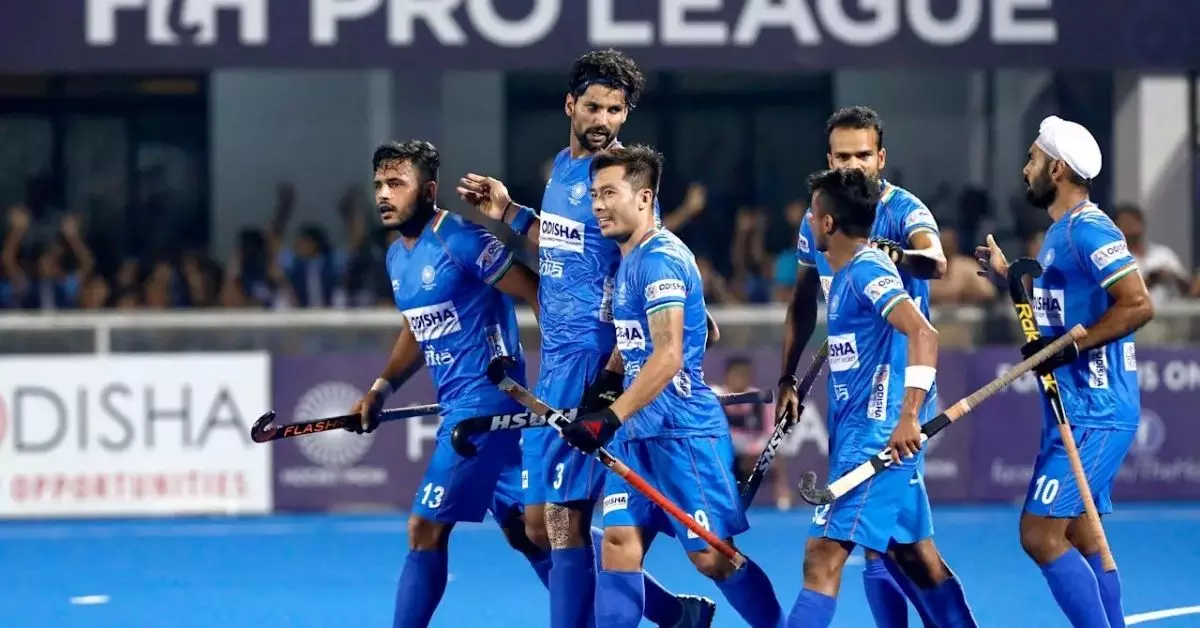Hockey
All you need to know about the rules, scoring and dimensions in hockey
Here's a gist of everything you need to know about the game of hockey and how it is played

Indian men's hockey team top contenders at Tokyo Olympics [Source: Olympics]
Hockey is a sport that has brought a lot of pride to India over the years. The Indian hockey team is the most successful team in Olympics history, having won eight gold medals between 1928 and 1980. Did you know that between 1928 and 1960, the Indian team remained unbeaten at the Olympics winning six consecutive gold medals? Before the 1960 Olympics final which they lost, the team had a streak of 30 consecutive wins.
As the focus shifts to the Men in Blue ahead of the Tokyo Olympics, let's a cast a glance at everything you should know about Hockey:
How does scoring work in Hockey?
The winner of a field hockey match is determined in terms of goals and both teams competing try to score as many goals as possible without conceding any. There are three ways by which players can score in field hockey – by a field goal, by a penalty corner, or by a penalty stroke.
A field goal can only be scored from inside the shooting circle which is a semi-circular area in front of the opponents' goal. The ball has to completely cross the line for it to be considered as a goal and goals scored from outside the shooting circle are disallowed. The ball has to be passed or dribbled down the field with the flat side of the hockey stick in order to get into goal-scoring positions.
A goal from a penalty corner is only counted if the ball goes outside the striking circle and a shot is taken from inside it [Source: Wiki Commons]
A penalty corner is awarded to the opposition when a defender commits an offence within the striking circle or within 25 yards of their goal. The defensive team, made up of four defenders and the goalie try to prevent the penalty from reaching the goal. A goal is only counted if the ball goes outside the striking circle and a shot is taken from inside it.
A penalty stroke can be awarded for several reasons. In such a case, the goalie faces the shooting player and tries to prevent a goal from being scored. This resembles penalty kicks in football.
What are the rules in Hockey?
There are several rules in hockey that are fundamentally important. Below we'll discuss the most important ones:
Only goalies are allowed to use their hands and feet to stop the opposition [Source: The Hockey Paper]
- Players are only allowed to contact the ball with the flat side of their hockey sticks. Kicking isn't allowed and intentionally trying to kick the ball in order to get an advantage might see possession being recycled. However, goalies are an exception as they are allowed to use their hands and feet to stop the opposition.
- Players cannot swing their hockey stick higher than their shoulders. They also cannot backswing the stick too high while taking a free hit or beginning a corner.
- Most importantly, only two players are allowed to be in contact with the ball at a time. Third-party obstruction results in possession going back to the team that had just one player involved in the move. Third-party obstructions can also end up in fouls resulting in a free-kick for the opposition.
- Finally, tackling is allowed in hockey but only as long as the players do not use their bodies to push or block their opponents. Making physical contact might see the player getting penalized.
What are the dimensions of the Hockey Pitch and Goal?
A field hockey pitch has to be 91.4m in length and 55m in width [Source: Wiki Commons]
